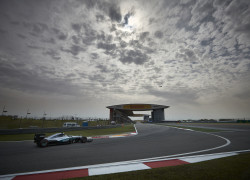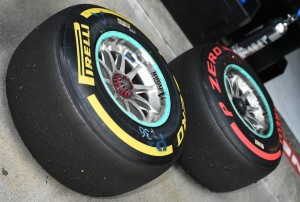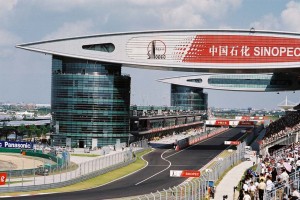
From the quaint streets of the Albert Park circuit in Australia the Formula 1 paddock heads the grand architecture of the Shanghai International circuit in China for the second round of the 2017 season.
Remarkably, F1’s latest visit to China marks the 14th year that the Shanghai circuit has been on the calendar. There is a bit of history about the circuit too. Its inaugural race in 2004 was won by then Ferrari driver Rubens Barrichello and in 2006 Michael Schumacher scored what would be his 91st and final victory. A year later Kimi Raikkonen’s win in changeable conditions would set up an unlikely championship triumph while, in 2012, the Chinese grand prix was also the very first race win for the reigning champion Nico Rosberg.
Nevertheless, while these stats and victories remain firmly in the history books the 2017 crop arrives with what is still very much an era in its infancy. While Ferrari has won the first race of the season the Shanghai International circuit demands a far different type of car performance. For one, this circuit is far more front limited which means that a car will need to work well with its front tyres to set competitive lap times. The tyres too will be tested more than in Australia as the Chinese circuit is far more abrasive.
Tyre wear may prove to be a significant factor, especially for Mercedes. It was this issue that Lewis Hamilton singled out as the reason for his defeat by Sebastian Vettel and Ferrari. What’s more, in Australia it was clear that Mercedes W08 is not as comfortable following other cars as the Ferrari appears to be which, by itself, can substantially influence tyre degradation and wear.
 However, these aren’t the only issues Mercedes are facing and the team has admitted that it needs to reduce the weight of its 2017 car. An overweight car not only costs lap time but also takes away the teams ability to position ballast in the car to aid handling. What’s more, Haas team principal Guenter Steiner thinks that Ferrari’s 2017 power unit might be on a par with than that of Mercedes, if not better. The make up of the Chinese circuit, which includes several high speed corners, and long straits, will be a good test of Steiner’s theory.
However, these aren’t the only issues Mercedes are facing and the team has admitted that it needs to reduce the weight of its 2017 car. An overweight car not only costs lap time but also takes away the teams ability to position ballast in the car to aid handling. What’s more, Haas team principal Guenter Steiner thinks that Ferrari’s 2017 power unit might be on a par with than that of Mercedes, if not better. The make up of the Chinese circuit, which includes several high speed corners, and long straits, will be a good test of Steiner’s theory.
But by no means is Mercedes ruled out of taking the top step of podium this weekend. The prediction of fairly low temperatures for the race weekend will be in their favour as cooler condition will mean less overheating of their tyres. But they’ll have to work hard if they are to withstand the threat of Ferrari. For Red Bull the fight is highly unlikely to be for the podium considering the deficit of the Renault engine to that of Mercedes and Ferrari.
 Several critics have railed about the difficultly of overtaking in 2017. The detractors felt vindicated by the overall lack of overtaking in Australia but Albert Park, as a semi-street circuit, is not the best barometer in this case. While the jury is still out in what is still a fairly immature point of the season the Shanghai International circuit, thanks to its two long straits, will offer more overtaking opportunities. It will not be definitive but it will begin to reveal how easy or difficult overtaking will be in 2017.
Several critics have railed about the difficultly of overtaking in 2017. The detractors felt vindicated by the overall lack of overtaking in Australia but Albert Park, as a semi-street circuit, is not the best barometer in this case. While the jury is still out in what is still a fairly immature point of the season the Shanghai International circuit, thanks to its two long straits, will offer more overtaking opportunities. It will not be definitive but it will begin to reveal how easy or difficult overtaking will be in 2017.
Since the start of the hybrid era in 2014 Mercedes have been an unstoppable juggernaut only rarely tripped up by themselves. In these three years the world has witnessed how the Mercedes team runs and conducts itself as the dominant force. At the start of 2017 they are by no means down and out but are, at the very least, perceived to be ever so slightly on the back foot. Therefore, it will be fascinating to observe how they respond.


